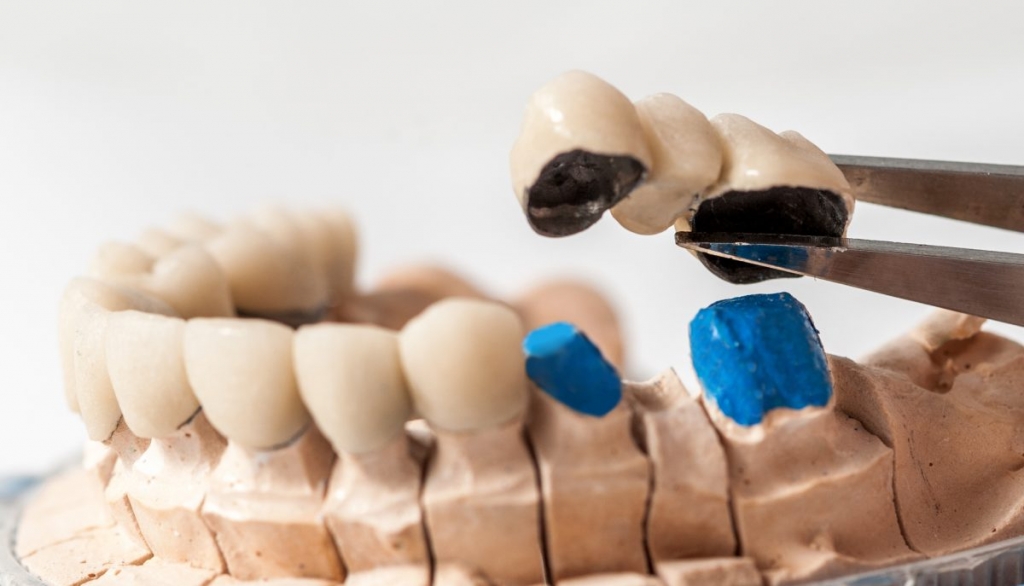General Dentistry
Fillings | Root Canals | Tooth Extractions | Crowns & Bridges
Dynamic Dental Group provides a comprehensive range of services and treatment options, including general dentistry, oral surgery and sedation. Our in-house lab gives us the materials and testing equipment needed in a full service facility. We can be your one source for all your dental and oral hygiene needs under one roof. We serve the surrounding areas of Effingham, Greenville, Hillsboro, and Salem from our local clinic in Vandalia, IL.
We believe in a team-based approach to our practice that expands our ability to provide personal service and a broad range of expertise.
We also believe that prevention is the key to our patients maintaining optimum oral heath. So we emphasize consistent preventative measures as well as regular dental examinations.
If necessary, we can provide you with a complete roster of dental care, including oral surgery and cosmetic dentistry.
We call ourselves Dynamic Dental Group because we want to offer the latest treatments, examinations and technologies to provide complete and contemporary service to out patients.
Fillings
We use fillings to replace and restore your tooth structure damaged due to decay or fracture. But gone are the days of a mouth filled with metallic fillings. We use state-of-the-art, tooth-colored resin or porcelain materials to fill the hole or fracture, eliminating unsightly and unhealthy silver/mercury fillings and giving you a more natural looking smile.
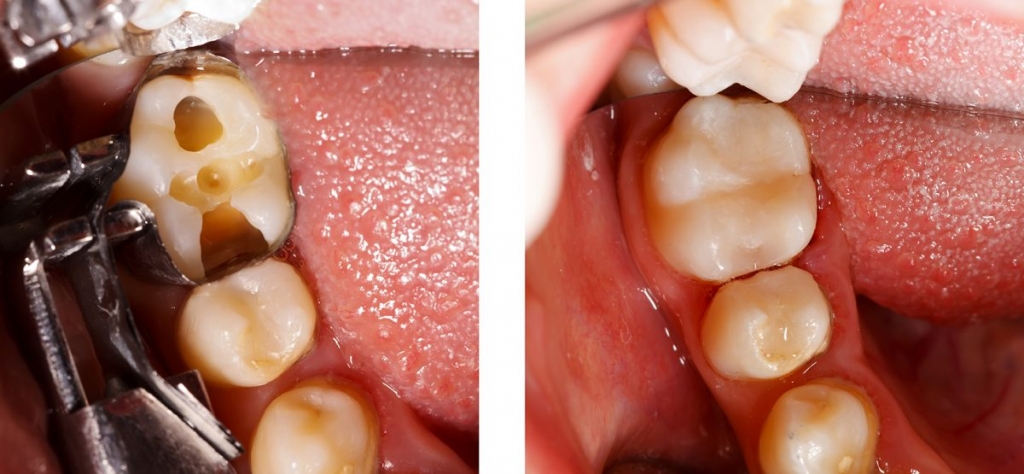
Root Canals
Root canal treatment, or endodontics, becomes necessary when the pulp (or soft tissue) inside a tooth becomes inflamed or diseased. This often occurs when untreated tooth decay burrows deep into the tooth and damages the tooth structure. When the damage is so severe it can’t be treated with a filling, we remove the diseased pulp, reshape the tooth canal, fill the area with a strengthening material and seal it. This preserves the tooth and makes a tooth replacement unnecessary.
Other reasons to have a root canal procedure are tooth decay, swelling or tenderness near an infected tooth, a chipped or broken tooth, extreme sensitivity to hot and cold, a blow to the tooth, or repeated dental procedures on a tooth.
It is a common misperception that root canals are painful procedures. Root canals are generally no more painful than having a cavity filled.
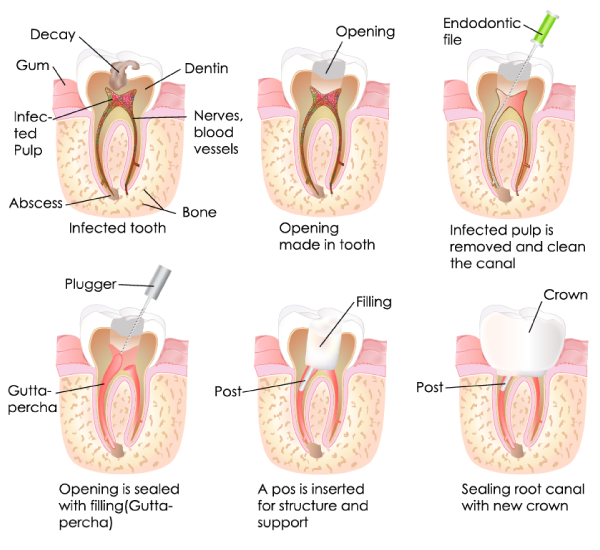
Tooth Extractions
General Extractions
Extracting a tooth may be necessary if:
• A primary tooth prevents the normal development of a permanent tooth.
• A tooth has suffered extensive decay or trauma.
• The patient has gum disease.
• The tooth is impacted, most often a wisdom tooth.
An extraction can be performed surgically or non-surgically depending on the severity of the case. We use a mild anesthesia to be sure our patient is as comfortable as possible during the procedure.
Wisdom Teeth
Your third molars, or “wisdom teeth,” usually appear in the late teens or early twenties. When there is not enough space in the jaw for these developing teeth, this is called impaction. This can lead to crowding of your teeth, misalignment and damage to adjacent teeth, as well possible damage to the jawbone and nearby nerves.
Sometimes the area around an emerging third molar becomes inflamed under the gums and in the jawbone. This causes a sac of liquid to form around the root of the tooth that can get infected. Serious damage to the jawbone, nearby teeth and gums can occur.
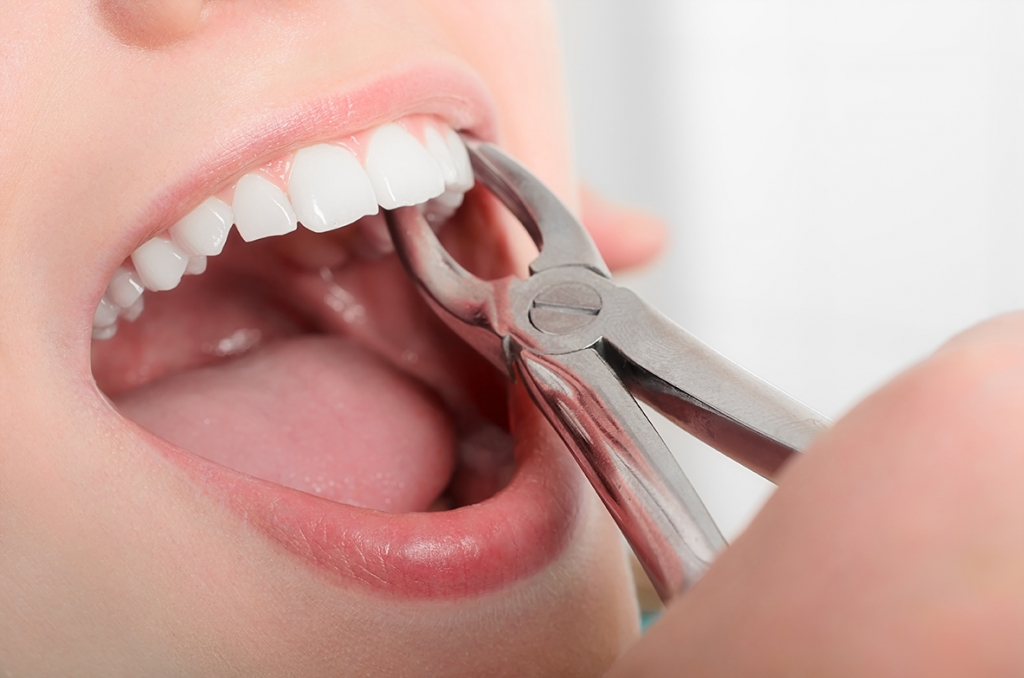
Crowns and Bridges
Crowns
A crown is a permanent tooth-shaped covering that fits over an original tooth that is decayed, damaged or cracked. They can be custom-made from porcelain, gold, acrylic resin or a mixture of these materials. Procedure times for crowns are varied based on a patient’s situation. After the procedure is completed, you should continue daily brushing and flossing as before. With proper oral care, your new crown can last a lifetime.
It takes about three to four weeks to do this procedure. After the procedure is completed, you should continue daily brushing and flossing as before. With proper oral care, your new crown can last a lifetime.
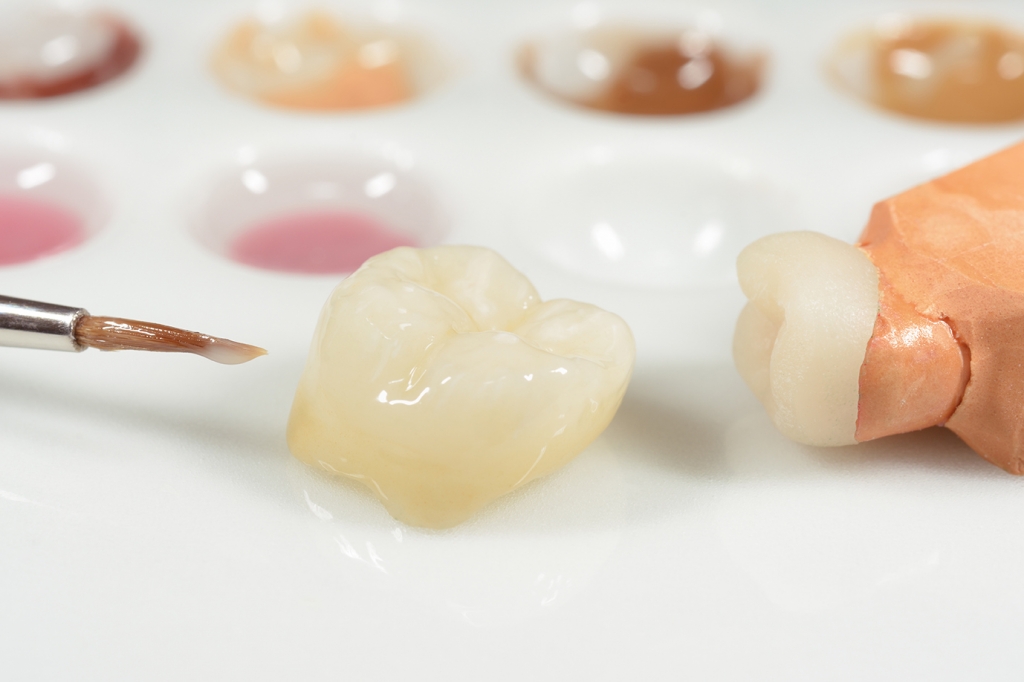
Bridges
A gap between teeth can put a strain on the surrounding teeth, and can lead to a bad bite, gum disease or other disorders. A dental bridge is a device to fill the gap created by a missing tooth or teeth. This boosts the integrity of the surrounding teeth and improves your smile.
The three main types of bridges are:
• Fixed Bridge. This is the most popular of the bridges. Crowns are placed over the nearby teeth and a custom-made false tooth is anchored to these crowns.
• Maryland Bridge. This is generally used to replace missing front teeth. With this type of bridge, a false tooth is supported by metal or porcelain framework attached to the backs of adjacent teeth. These are made of a composite resin that matches your natural tooth color.
• Cantilever Bridge. This is usually used when there are teeth on only one side of the missing tooth. A cantilever bridge consists of a filler tooth held in place by two crowns on the two adjacent teeth.
